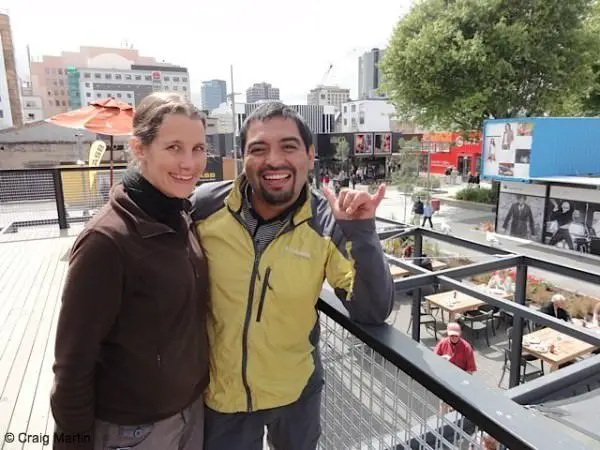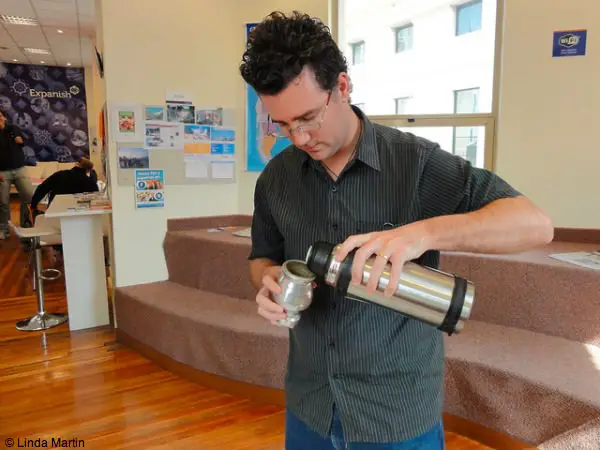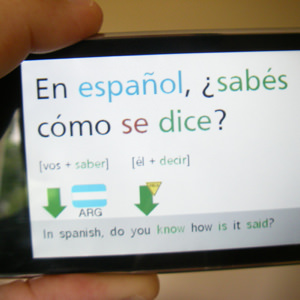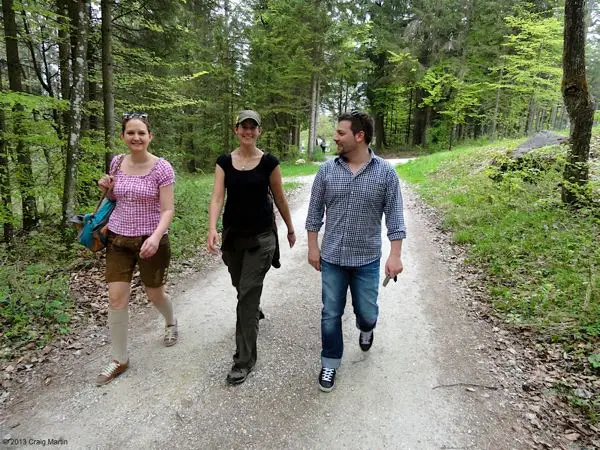How to learn a language podcast, part two
or: How to keep going with language learning
[box type=”info”]This show follows on from how to learn a language on the road.[/box]
Language learning is hard. Most travellers I’ve met would agree with that statement, and would also go on to say that they were never good at languages, that their brains just don’t work that way.
For years, I thought the same. I tried to teach myself French during downtime at work, and felt like I was banging my head up against a brick wall. I studied the top ten words of the language of each country I visited, but couldn’t remember them when I had to use them. I just wasn’t cut out for languages.
But then, I fell in love with Spanish, and everything changed. I joined a night class and spent my evenings chatting to Spanish speakers or listening to Spanish music. As I progressed, I started having Skype calls in Spanish and watching TV shows from Spain. I found podcasts and websites in Spanish and even bought a couple of grammar textbooks. Four years later, I’m happy (and slightly amazed) to say that I speak fluent Spanish.

Now, I’ve decided to learn German. I’m not in love with German, which makes things a lot more difficult, but I’ve realized that by far the most important thing to do when learning a language, or learning anything really, is to stick at it. So, how do you stick at it?
Listen and learn!
To listen, hit play below or find episode 284 in iTunes, Stitcher or Soundcloud:
OK, on to some how-to’s when you need to learn a language:
1. Give yourself some external influences
I’ve found that, if left to myself, I’m pretty likely to stop studying after a week or so. But if I have a weekly lesson or language exchange, I’ll probably do more than just go to the lesson. My desire to improve before the next class means that I’ll do my homework and probably do a bit of private study too.

Your three main options for language classes are group lessons, classes with a private tutor, and language exchanges. There might be schools in your city dedicated to the language you’re learning, or you could see if your local high school or community college offers night classes. If you’d prefer a private tutor, look on Craigslist, eBay or wherever people post classified ads in your city, and arrange for a meeting. If you can’t find anyone, go online — websites like italki have large communities of teachers who’ll give lessons via Skype. Ask your teacher to only speak the language you’re learning, and make sure you’re speaking a lot yourself — the best way to learn a language is to use it.
If you’re on a budget or just want to maintain your language level rather than study a lot of grammar, a language exchange could be a good idea. You meet up with someone who speaks the language you’re learning and wants to learn yours, and you spend half your time together speaking in each language. Once again, you can do this in person or online, but personally I like to meet people face to face as much as possible. You could also do this as well as taking a class, to get more speaking time in!
2. Keep it interesting

It’s important to make language learning part of your daily routine, even if you only do five minutes of study over breakfast. But you’re more likely to give up if you find it boring. Apps like Busuu and Babbel are fun and interactive, and don’t take too much time. Try mixing things up a little: if you have a two-hour study session, do some grammar, then listen to a song, then read an article. Don’t get bogged down in one thing!
3. Make friends
Get to know people who speak the language you’re learning, and speak to them in that language. You can do this through language exchanges, or by traveling in a country where your target language is spoken — Couchsurfing is great for this! My Spanish improved a lot when we travelled around South America and stayed with local people who didn’t speak any English.

Remember that you’ll make lots of mistakes along the way, and you’ll probably feel stupid and frustrated when you get things wrong. But you can definitely do it — keep learning just a little every day, and you’ll find language learning isn’t as hard as you thought it was.
What now?
Go take a look at how to learn a language on the road.
To listen, hit play above or check in iTunes, Stitcher or Soundcloud.







